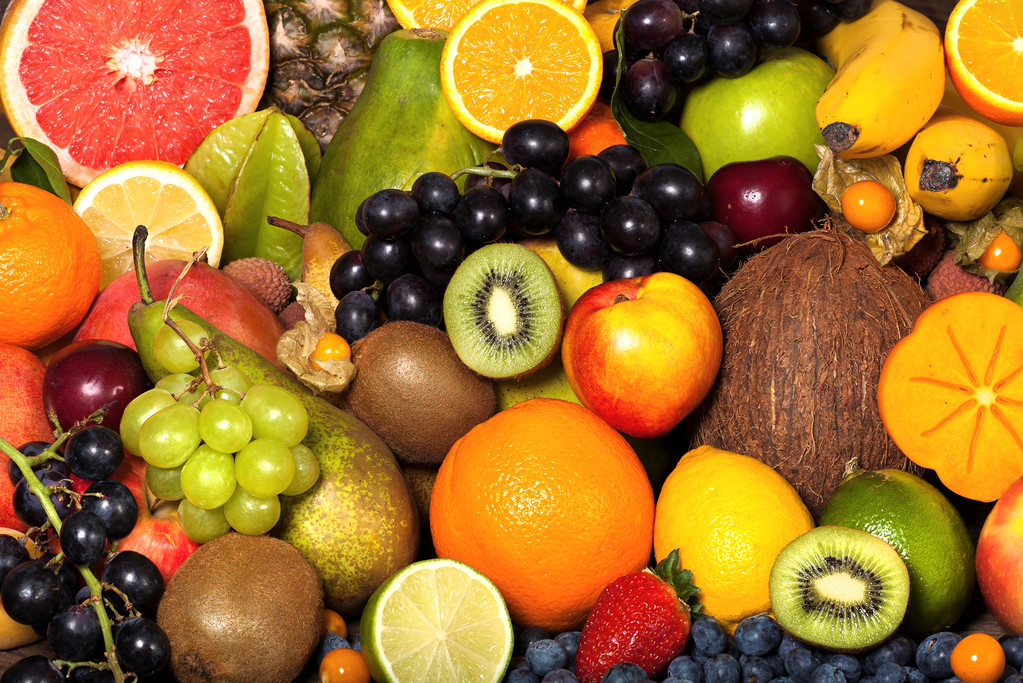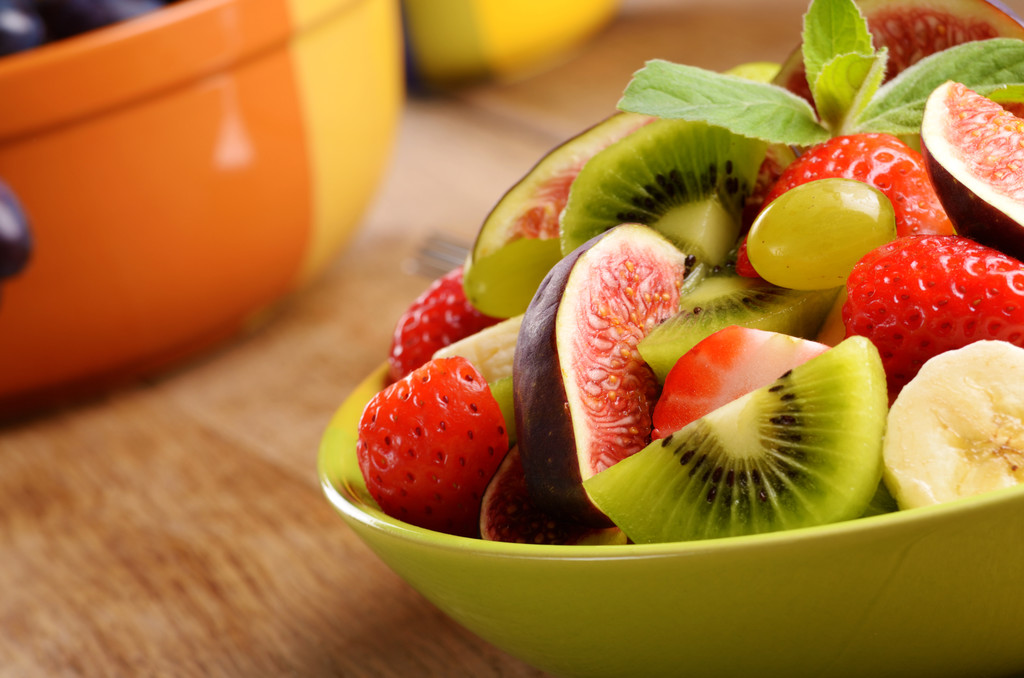Anyone who wants to watch their sugar consumption should know that the sugar content in fruit is often higher than expected. We have put together a list of low-sugar fruits.
Fruit used to be considered the ultimate health maker. With the realization of how much sugar is in some fruits, this picture was revised somewhat. But what’s true – are fruits healthy or should you avoid them because of the sugar?

fruit with little sugar
Although fruit is undoubtedly healthy, the sugar (fructose) contained in fruit is by no means healthier than conventional table sugar. Household sugar (sucrose) also consists of about half fructose.
People who want to limit their sugar consumption should therefore choose fruit that is low in sugar.
Below we have compiled a list of low-sugar fruits:
1. Lemons
Per 100 grams: 2.5 grams (g) of sugar and 30 kilocalories (kcal)
Even if lemons are not just eaten as a snack, their juice makes a good addition to smoothies or other refreshing drinks. You can already tell from the sour taste: this is a type of fruit with little sugar. Limes even undercut this sugar content: they contain 1.7 grams of sugar per 100 grams!
2. Soft fruit
Soft fruit generally contains little sugar. Thanks to their low calorie content, strawberries, blueberries and other berries are an ideal snack with many valuable vitamins. But what exactly makes berries so healthy? It is mainly vitamin C and vitamin A that are contained in large quantities in almost all types of berries. Strawberries, for example, provide around 65 milligrams per 100 grams more vitamin C than oranges. In addition, valuable antioxidants and minerals are found in berries.
The plant pigments in the berries also have a health-promoting effect. In general, the darker the fruit, the more of the secondary plant substance it contains. This has an anti-inflammatory effect and is said to strengthen the immune system.
Here is an overview of berries with little sugar (per 100 grams):
Raspberries: 4.8 g sugar, 34 kcal
Blackberries: 4.9 g of sugar, 30 kcal
Strawberries: 5.5 g sugar, 32 kcal
Currants (red): 7.3 g of sugar, 43 kcal
Blueberries: 7.4 g sugar, 42 kcal
3. Watermelon
Per 100 g: 6.2 g sugar and 38 kcal
Watermelons are low-sugar fruits and are rich in vitamins A and C, making them good for your skin and hair. The kernels are also healthy because, in addition to vitamins A and C, they contain proteins, unsaturated fatty acids and magnesium. The amino acid citrulline contained in the fruit is converted to arginine in the body. This amino acid has a vasodilating effect and can reduce the risk of high blood pressure. Watermelons also provide the mineral potassium. This is important for numerous bodily functions.
4. Guava
Per 100 g: 6.7 g sugar and 34 kcal
The exotic fruit has little sugar and is one of the berries and is rich in vitamin C. It is also a supplier of minerals such as calcium, iron and potassium.
5. Grapefruit
Per 100 g: 5.9 g sugar and 50 kcal
As a fruit with little sugar, grapefruits contain a lot of vitamin C. They also provide vitamin A and various B vitamins as well as minerals such as calcium, magnesium and potassium.
The same applies here: keep your eyes open when shopping. Grapefruits often come from China and have therefore traveled a very long way – but they are also grown in Spain or Turkey. Prefer these to the well-travelled grapefruits and pay attention to organic quality.
6. Prickly Pear
Per 100 g: 7.1 g sugar and 37 kcal
Prickly pears contain vitamins E, B and C. The low-sugar fruits provide the minerals potassium, calcium and magnesium.
7. Apricots
Per 100 g: 7.8 g sugar and 48 kcal
Apricots contain little sugar and are a popular snack in summer – in addition to their fine taste, they provide some valuable nutrients and vitamins. For example, the fruits contain B vitamins and vitamin C as well as phosphorus, calcium, potassium and carotene (provitamin A). The latter is converted into vitamin A by our body.
8. Avocado
Per 100 g: 0.7 g sugar and 160 kcal
From a botanical point of view, the avocado is a fruit and actually belongs to the berries. Despite its high calorie density, it contains hardly any sugar. That shouldn’t come as a surprise, because the fruit doesn’t taste sweet.
Despite the high number of calories, the fruit is extremely healthy: it contains vitamin B6, vitamin C and E as well as calcium, phosphorus and iron. It is also rich in unsaturated fatty acids and has a high potassium content.
Medium sugar fruit
The following fruits contain between 8 and 9 grams of sugar per 100 grams:
Cherries: 8 g of sugar and 50 kcal
Honeydew melon: 8 g of sugar and 34 kcal
Peaches & Nectarines: 8 g sugar and 42 kcal
Orange: 9 g of sugar and 47 kcal
Kiwi: 9 g of sugar and 61 kcal

Fruits with a lot of sugar – you should eat these fruits in moderation
If you look at the list of particularly sugary fruit varieties (from 10 grams of sugar per 100 grams), this is not particularly surprising. Because this is where the particularly sweet fruits are found. This includes:
Pineapple, apples, pears & plums: 10 g sugar and 50 kcal
Tangerines: 11 g of sugar and 53 kcal
Mangoes: 12 g sugar 60 kcal
Figs: 13 g sugar 63 kcal
Pomegranates: 14 g sugar 83 kcal
Lychees: 15 g sugar 66 kcal
Grapes: 16 g sugar 67 kcal
Persimmon: 16 g sugar 71 kcal
Bananas: 17 g sugar 93 kcal
Dates: 63 g sugar 282 kcal

